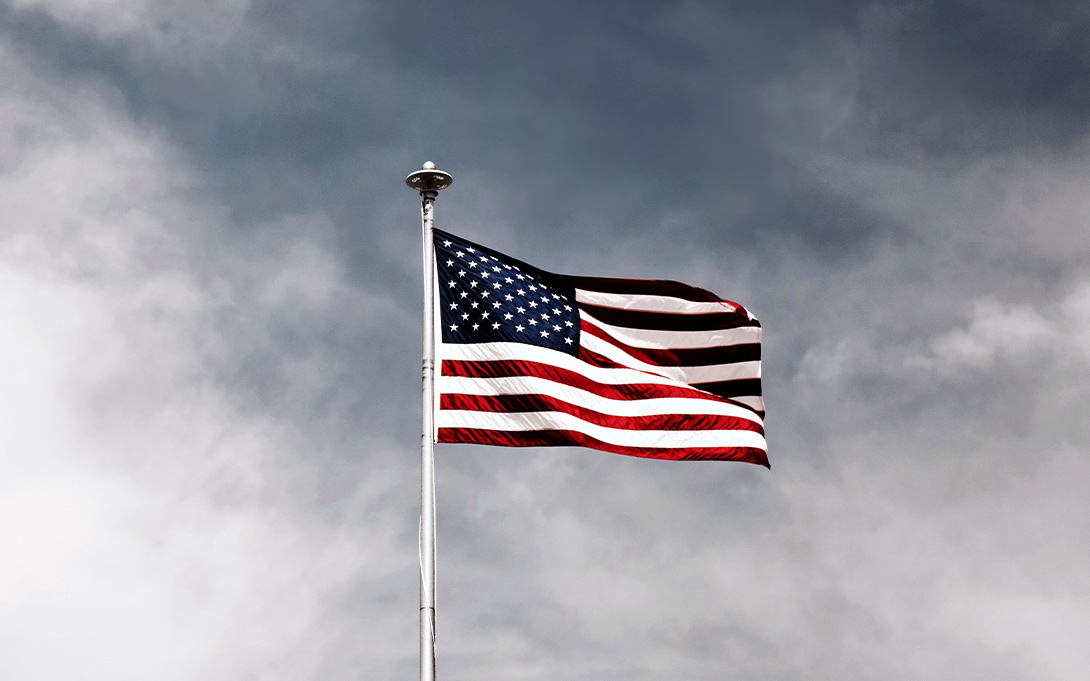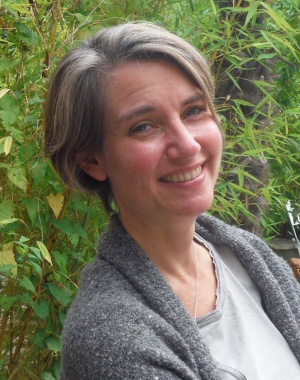
In the United States and around the world, the fate of democracy is being challenged. A number of studies have shown that the majority of Americans believe democracy is at risk. At the University of Michigan, faculty and students are participating in academic programming and initiatives designed to encourage participation in, and the strengthening of, democracy and civil discourse—and donors are helping spur this engagement.
Under the UMICH Votes Coalition, U-M students participated in the Democracy & Debate theme semester during the 2022-23 academic year, which encouraged students to explore the exchange of ideas and free speech, the responsibilities held by members of a democratic society, structural inequalities in our democratic systems, the power of the individual voter’s voice, and democracy from a local to a global perspective. Additionally, Turn Up Turnout and other initiatives under this effort are not only helping students stay informed about how and where to vote, but also exposing them to the issues at hand via nonpartisan, evidence-based, and inclusive public discourse. Conversations Across Differences at the Ford School of Public Policy offers a speaker series, curriculum and leadership development, co-curricular programming, and community-building opportunities for students.
To learn what U-M is doing to help students and the greater Ann Arbor community understand and participate in democracy, Leaders & Best sat down with Jenna Bednar, professor of Political Science at LSA, professor of Public Policy at the Ford School, and faculty advisor to Democracy & Debate; and Angela Dillard, chair of the Department of History and the Richard A. Meisler Collegiate Professor of Afroamerican and African Studies also at LSA, to learn five ways we can exercise democracy.
Instill empathy
To talk across differences, we must first appreciate other points of view.
Dillard: Understanding each other helps us understand those places where we do differ and why people come to hold different kinds of positions. WeListen was initially an entirely student-led project, and it was about talking across differences. They would host these large-scale dialogues for students, mostly undergraduates. And while what they said they were doing was getting people together to talk across differences, what they were really doing, more importantly, was inculcating empathy.
Converse—and listen—across differences
When it comes to appreciating different perspectives, it starts with listening, and the freedom to ask questions.
Bednar: It starts with learning how to appreciate and respect differences, and then learning how to first listen across differences before we can actually work across differences. This is an incredibly important skill that a number of U-M departments are focused on teaching students.
Dillard: I think, in an academic environment, what is as important as free speech is this idea of free inquiry: that you have to be free to pursue where a line of argument takes you. You have to be encouraged to look at different perspectives when you’re trying to figure out what’s really true or what’s the best solution going forward. Free speech and free inquiry sound the same, but that shade of difference is really important for academic institutions. For example, a number of studies have demonstrated that young people are more receptive to ideas that they don’t agree with than their parents or grandparents. However, they believe peaceful, civil discourse is the most valuable method for expressing these differing perspectives and won’t tolerate speech that resembles bullying. But rejecting certain types of speech does not mean that they’re not open to opinions that are different from their own.
Support voting infrastructure
Across U-M, faculty and staff are thinking outside the box when it comes to making voting accessible to students. The Creative Campus Voting Project partnered with the Museum of Art (UMMA) and Ann Arbor City Clerk’s Office to bring a voting hub to Central Campus.
Bednar: UMMA has been amazing at promoting the health of our democracy by devoting space in the museum for voting infrastructure, and then they paired up with two brilliant professors from the Stamps School of Art & Design, Stephanie Rowden and Hannah Smotrich, who are designers of space, to imagine a welcoming, beautiful design to promote the dignity of what’s happening in that space—registering to vote, voting early, and more. It provides information to students in a very accessible way and helps engage people who have never participated in the democratic system. Additionally, Turn Up Turnout is a student organization that helps people figure out where and how to register to vote, how to find information about what’s on their ballot, and how to participate. These are great examples of U-M’s commitment to strengthening our democracy.
Embrace complexity
The multidimensional challenges that face our democracy require innovative, bold ideas to solve them. Recognizing our democracy’s complicated history is a crucial first step.
Dillard: The challenges confronting us in today’s world are really complex issues. They’re not going to have easy answers. They’re not going to be soundbites. If you teach people complexity, especially through history, it’s a little bit easier to see it in the present. I think we need to teach our students and broader communities to resist simplicity and get more comfortable with the complexities of our histories. It’s these simple stories that are making it much more difficult for us to really talk across our own differences.
Practice, practice, practice: Building up a democratic culture
Democracy is only going to work if we all do it.
Dillard: Civic engagement and democratic participation are things that you get better at the more you practice them. For instance, we know that if you can get college-aged students to vote for the first time when they’re fairly young, they will vote more consistently over their lifetime.
Bednar: It’s incredibly important to build up a set of community expectations for democracy. We emphasize democratic culture because we want people to recognize that everyone’s doing it—that it takes community participation, and we want to build up these norms of expectation that one another is participating. It was really powerful on election night to see students lined up, some waiting for nearly six hours, to exercise their right to vote. And that tells the world that the students at the University of Michigan care, and they witnessed one another participating.
Donors supporting change
As both Bednar and Dillard said, strengthening democracy takes the entire community working together toward this common goal, and donors like Jeffrey Seller (AB ’86) and Tom Tuft (AB ’69) are supporting this effort.
While Seller supports the Turn Up Turnout voting initiative, Tuft supports the Ford School’s Conversations Across Differences programming, among other areas.
“There is a huge political divide right now in this country, an overemphasis on the extremes on both sides,” Tuft said in an earlier article in State & Hill.
With philanthropic support, programs and initiatives across the university are able to thrive, providing opportunities for the next generation of leaders to not just participate in democracy, but help strengthen it.
This article was written by Madeleine Swanson for Leaders & Best
